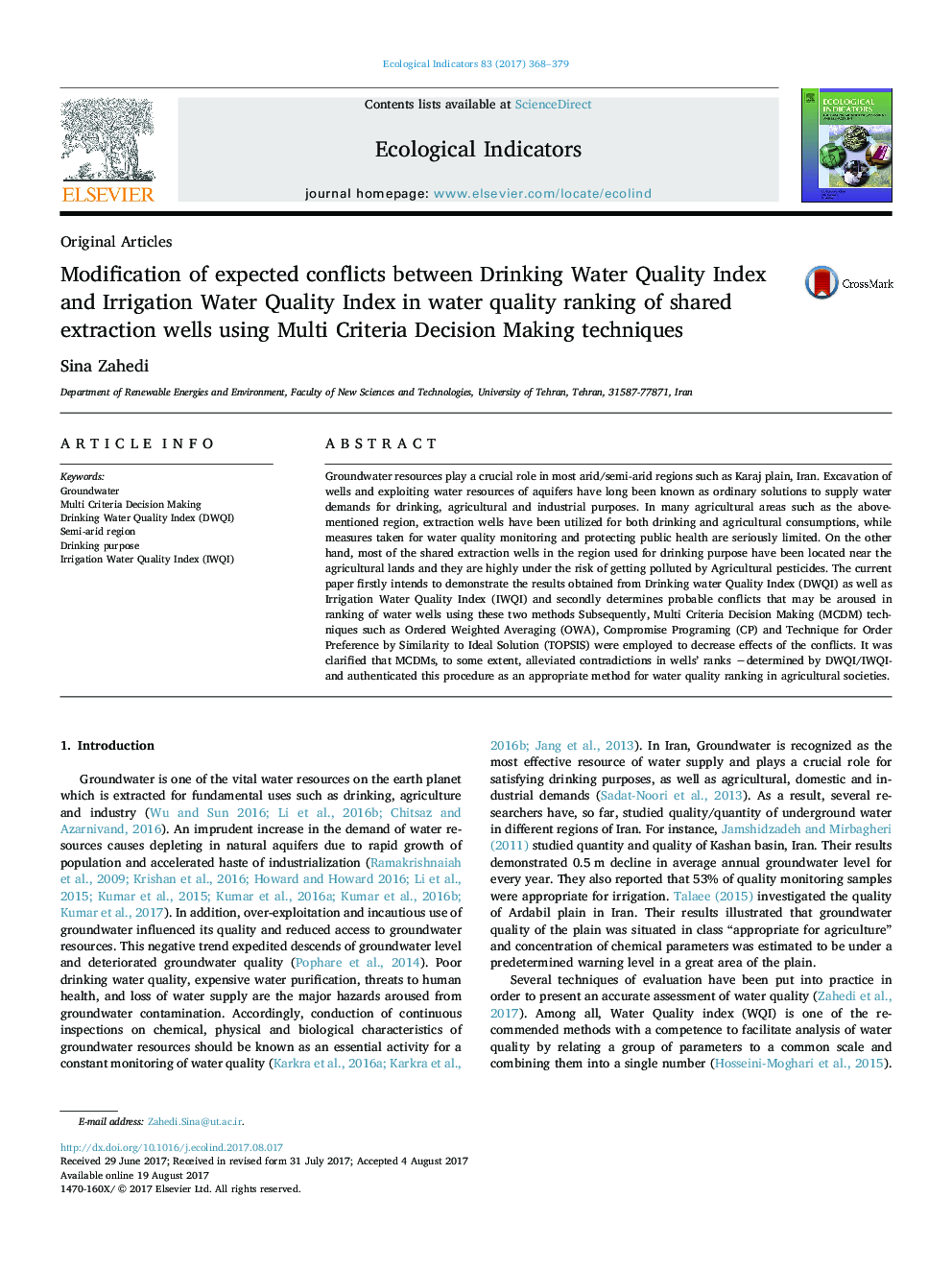| کد مقاله | کد نشریه | سال انتشار | مقاله انگلیسی | نسخه تمام متن |
|---|---|---|---|---|
| 5741507 | 1617119 | 2017 | 12 صفحه PDF | دانلود رایگان |
- This paper discussed differences between the quality requirements of water used for drinking purposes compared to irrigation.
- Considering sensitivities about quality of drinking water, the paper focused on the assessment methods of drinking/irrigation water quality.
- Drinking/Irrigation Water Quality Indices (DWQI & IWQI) were employed to analyze quality of drinking and agriculture water.
- Using the above methods as the single assessment techniques without any modification gave rise to conflicting results of water quality ranking.
- Using Multi-criteria Decision Making methods were found successful to remove probable conflicts and presented reasonable results of ranking.
Groundwater resources play a crucial role in most arid/semi-arid regions such as Karaj plain, Iran. Excavation of wells and exploiting water resources of aquifers have long been known as ordinary solutions to supply water demands for drinking, agricultural and industrial purposes. In many agricultural areas such as the above-mentioned region, extraction wells have been utilized for both drinking and agricultural consumptions, while measures taken for water quality monitoring and protecting public health are seriously limited. On the other hand, most of the shared extraction wells in the region used for drinking purpose have been located near the agricultural lands and they are highly under the risk of getting polluted by Agricultural pesticides. The current paper firstly intends to demonstrate the results obtained from Drinking water Quality Index (DWQI) as well as Irrigation Water Quality Index (IWQI) and secondly determines probable conflicts that may be aroused in ranking of water wells using these two methods Subsequently, Multi Criteria Decision Making (MCDM) techniques such as Ordered Weighted Averaging (OWA), Compromise Programing (CP) and Technique for Order Preference by Similarity to Ideal Solution (TOPSIS) were employed to decrease effects of the conflicts. It was clarified that MCDMs, to some extent, alleviated contradictions in wells' ranks âdetermined by DWQI/IWQI- and authenticated this procedure as an appropriate method for water quality ranking in agricultural societies.
Journal: Ecological Indicators - Volume 83, December 2017, Pages 368-379
